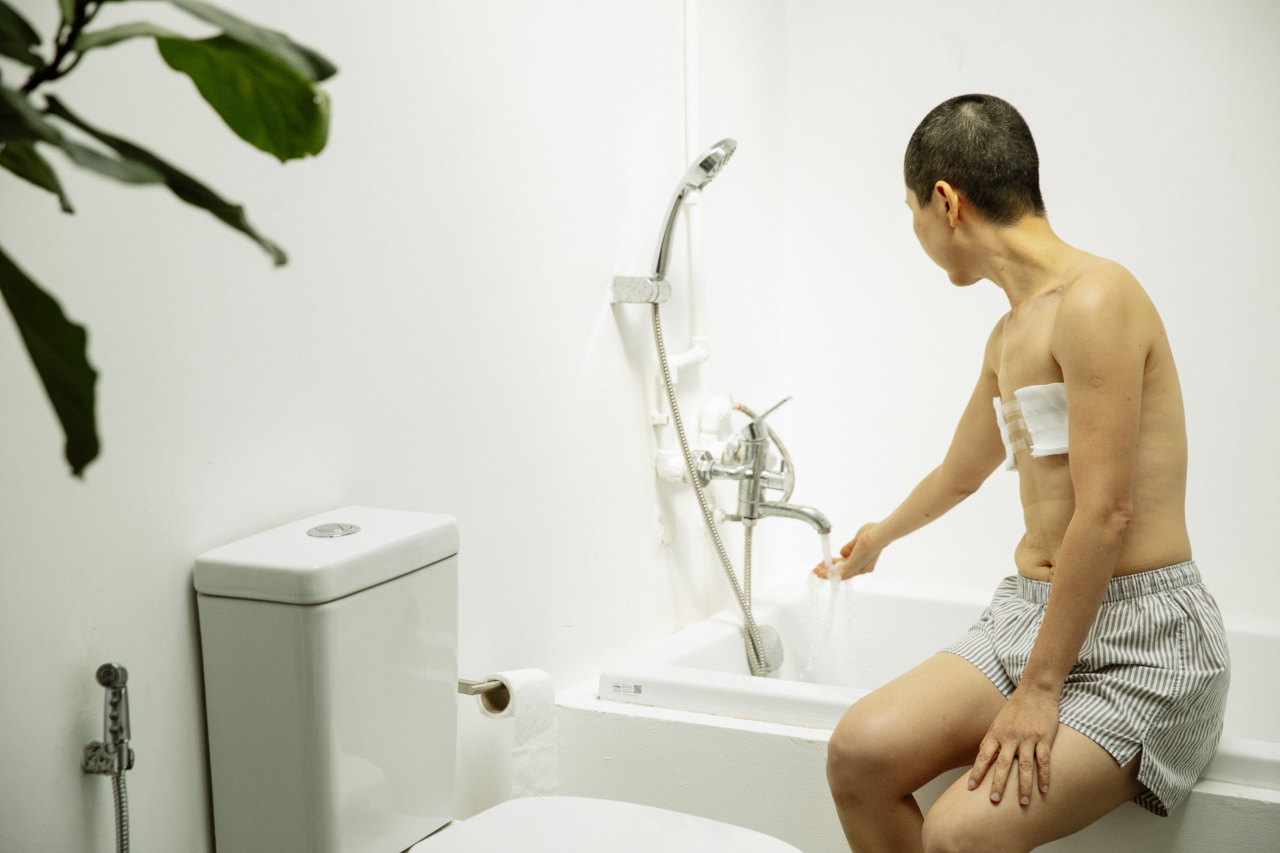Being diagnosed with breast cancer is a life-altering event that can impact various aspects of a person’s life, including sexual wellness.
The physical and emotional effects of breast cancer and its treatments can significantly impact a person’s sexual health and well-being. However, it is essential to remember that reclaiming sexual wellness after breast cancer is possible with support, understanding, and appropriate interventions.
The Impact of Breast Cancer on Sexual Wellness
Individuals diagnosed with breast cancer often experience various changes in their bodies and emotional well-being. These changes can affect sexual wellness and lead to difficulties in intimate relationships.
Here are some common ways breast cancer can impact sexual health:.
1. Physical Changes
During breast cancer treatments such as surgery, radiation, and chemotherapy, individuals may experience physical changes that can affect sexual wellness.
For instance, surgical procedures, including mastectomy or lumpectomy, can lead to scarring, altered breast appearance, or loss of sensation in the breasts. Radiation therapy can cause skin changes and fatigue, which may affect sexual desire and energy levels. Chemotherapy can lead to hormonal changes, vaginal dryness, or other side effects that impact sexual functioning.
2. Emotional Impact
Receiving a breast cancer diagnosis and undergoing treatments can result in emotional turmoil and significant stress.
Fear, anxiety, depression, body image concerns, and self-esteem issues are common emotional challenges faced by individuals with breast cancer. These emotional factors can profoundly impact sexual wellness and intimacy.
3. Fatigue and Low Energy Levels
One of the most common side effects of breast cancer and its treatments is fatigue. Fatigue can impact sexual desire and energy levels, making it challenging to engage in sexual activities.
Additionally, fatigue may affect emotional well-being, making it more difficult to feel connected and engaged in intimacy.
4. Hormonal Changes
Breast cancer treatments, such as chemotherapy and hormone therapy, can cause hormonal changes in the body. These hormonal changes can lead to menopausal symptoms, including vaginal dryness, decreased libido, and changes in sexual functioning.
5. Body Image and Self-Esteem
Breast cancer treatments can lead to changes in body image, such as hair loss, weight fluctuations, or surgical scars.
These physical changes can affect an individual’s self-esteem and confidence, making it challenging to feel comfortable and engaged in sexual relationships.
Reclaiming Sexual Wellness: Steps Towards Healing
While the impact of breast cancer on sexual wellness can be significant, there are steps individuals and their partners can take to reclaim their sexual well-being. Here are some strategies to consider:.
1. Open Communication
Open and honest communication is crucial when it comes to addressing sexual wellness after breast cancer.
Both individuals and their partners should feel comfortable discussing their concerns, desires, and any physical or emotional changes they have experienced. Communication is essential for understanding each other’s needs and finding ways to navigate the challenges together.
2. Seeking Professional Help
Professional help from healthcare providers specializing in sexual health can play a vital role in reclaiming sexual wellness.
These specialists can provide guidance, education, and interventions to address specific concerns, such as vaginal dryness, decreased libido, or body image issues. They can also help explore alternative forms of intimacy and provide emotional support throughout the healing process.
3. Gradual Exploration
After breast cancer treatments, individuals may need time to adjust and explore their bodies in a new context. Gradual exploration of sexual activities, with a focus on comfort and communication, can help rebuild intimacy and sexual wellness.
It is essential to prioritize consent, listen to one’s body, and be patient during this process.
4. Manage Fatigue
Fatigue is a common side effect of breast cancer and its treatments, and managing it is essential for reclaiming sexual wellness. It may be helpful to plan intimate moments during periods of the day when energy levels are higher.
Prioritizing rest and self-care can also contribute to overall energy levels and well-being.
5. Addressing Body Image Concerns
Dealing with body image concerns requires compassion and understanding from both individuals and their partners.
Engaging in activities that promote self-acceptance, such as practicing mindfulness or seeking therapy, can help individuals rebuild their self-esteem and feel more comfortable with their bodies.
6. Consider Support Groups
Support groups consisting of individuals who have experienced similar challenges can provide a safe space to share experiences and learn from others.
Joining breast cancer support groups or sexual wellness support groups can help individuals gain insights, coping strategies, and emotional support during their journey towards reclaiming sexual wellness.
7. Educate Yourself
Education is empowering. Individuals and their partners should take the initiative to educate themselves about the physical and emotional changes that may occur due to breast cancer and its treatments.
Understanding these changes can help alleviate anxiety and set realistic expectations for sexual wellness.
8. Emotional Intimacy
Remember that sexual wellness encompasses more than physical acts. Emotional intimacy plays a crucial role in sexual relationships.
Focus on building emotional connections, engaging in non-sexual forms of intimacy, and exploring activities that nurture emotional bonds.
9. Integrate Sensuality
Exploring sensuality and pleasure outside of sexual activities can be an important part of reclaiming sexual wellness.
Engage in activities such as massage, cuddling, or sensual touch that prioritize connection and pleasure without the expectation of sexual performance.
10. Patience and Self-Compassion
Individuals reclaiming sexual wellness after breast cancer should practice patience and self-compassion. Healing takes time, and setbacks can occur along the way.
Being kind to oneself, celebrating small victories, and seeking support when needed are essential components of the healing process.
Conclusion
Reclaiming sexual wellness after breast cancer is a personal journey that requires patience, understanding, and support.
By addressing physical and emotional changes, seeking professional help, and nurturing intimacy, it is possible to rebuild sexual wellness and strengthen intimate relationships. Remember that everyone’s journey is unique, and it is important to prioritize self-care and self-compassion throughout the process.




























